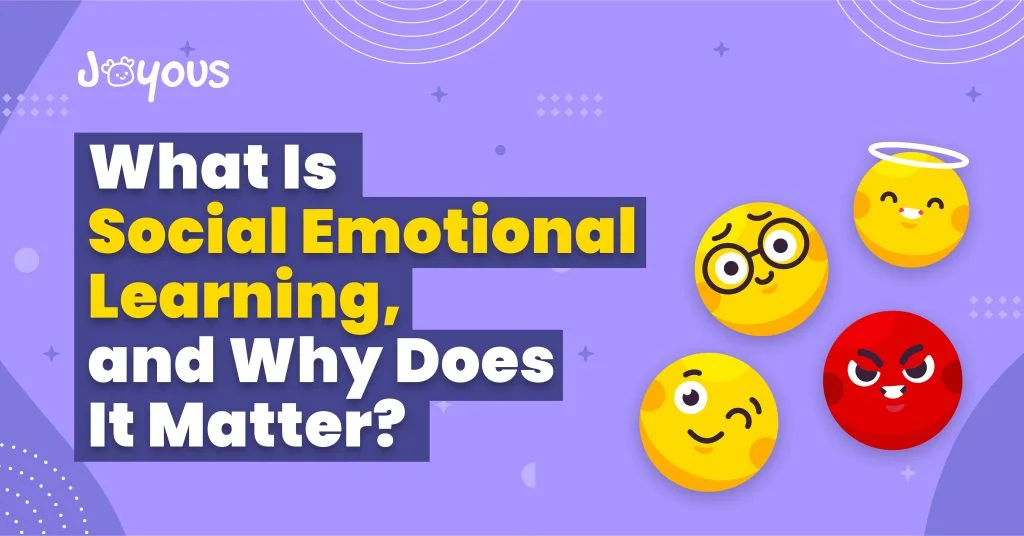We all want children to grow up happy, confident, and successful—not just in exams, but in life. But what does that really take?
While academics often dominate early education, there’s something even more foundational: Social Emotional Learning (SEL).
Let’s take a closer look at what SEL is, and why it’s becoming a core part of forward-thinking education around the world.
What Is Social Emotional Learning (SEL)?
Social Emotional Learning refers to the process of acquiring and applying the knowledge, attitudes, and skills to:
- Understand and manage emotions
- Set and achieve positive goals
- Feel and show empathy for others
- Establish and maintain healthy relationships
- Make responsible decisions
In short, SEL is the foundation for how we learn to relate to others, handle challenges, and navigate the world around us—starting from early childhood and continuing throughout our lives.
Why Is SEL Important?
It builds emotional intelligence
At its core, SEL strengthens a child’s emotional intelligence (EQ)—a predictor of success that’s often more influential than IQ.
Research from psychologist Daniel Goleman shows that emotional intelligence accounts for nearly 90% of the difference between high performers and their peers in leadership positions.
When children learn to recognize and name their emotions, they gain better control over their reactions.
This emotional self-awareness lays the groundwork for managing stress, delaying gratification, and responding rather than reacting—skills just as useful on the playground as in the boardroom.
It supports academic achievement
Contrary to the idea that SEL “takes away” from academics, it actually boosts it.
According to a meta-analysis of 213 studies involving over 270,000 students (Durlak et al., 2011), children who participated in SEL programs showed an 11% increase in academic performance compared to those who didn’t.
These students also showed improved classroom behavior, greater ability to manage stress, and more positive attitudes toward themselves and school.
In other words, when kids feel safe, seen, and supported, they learn better.
It improves relationships and social skills.
SEL helps children navigate relationships by teaching them how to cooperate, resolve conflicts, and communicate effectively.
Children who develop these social skills are more likely to build healthy friendships, show empathy, and avoid bullying behaviors.
And these relationship skills carry forward. Adults with strong SEL foundations tend to have stronger interpersonal skills in the workplace, healthier marriages, and more fulfilling social lives.
It leads to long-term life success.
The benefits of SEL are not short-term. Longitudinal research shows that early SEL skills are predictive of long-term outcomes well into adulthood.
A 2015 study by Jones, Greenberg, & Crowley found that children with stronger social-emotional skills in kindergarten were more likely to graduate from high school, complete a college degree, and hold full-time jobs by age 25. They were also less likely to have substance abuse problems or run-ins with the law.
Put simply: children who can work well with others and manage their emotions grow into adults who can thrive in the workplace and in life.
Why Start Early?
Ages 5–6 mark a critical window for laying the foundation of emotional and social development. At this stage, children are learning to:
- Identify and name their own feelings
- Share, take turns, and cooperate in group settings
- Begin friendships and experience conflicts
High-quality SEL during the kindergarten years helps children handle these everyday moments with growing confidence. They practice regulating emotions, expressing themselves respectfully, and solving problems—skills that shape how they engage with the world.
But learning doesn’t stop here.
From ages 7 to 12, children face more complex social and academic challenges. Continued SEL support through the primary school years helps them:
- Manage stress and disappointment
- Navigate friendships and peer pressure
- Develop empathy, leadership, and responsible decision-making
SEL is not a one-time lesson—it’s a lifelong skill set that grows with the child, preparing them for success both in and beyond the classroom.
How Adults Can Support SEL
Whether you’re a parent, teacher, or caregiver, your daily interactions can support SEL development:
- Model calm, respectful behavior
- Talk openly about feelings
- Encourage problem-solving instead of punishment
- Create routines that provide emotional safety
- Praise effort and growth, not just outcomes
Consistency and connection go a long way.
SEL at Joyous Preschool and Skill School
At Joyous, SEL isn’t an add-on—it’s built into our weekly curriculum.
Through our Social Emotional Learning Program, children explore emotions, friendships, and social challenges in age-appropriate ways. We use stories, role play, and group discussions to help children reflect, connect, and grow.
Our goal: not just smart learners, but kind, resilient, emotionally intelligent children.
A Gift That Lasts a Lifetime
SEL helps children do more than get through school—it helps them build the inner toolkit they’ll rely on for the rest of their lives.
Want to nurture your child’s confidence, empathy, and resilience?
Start with social emotional learning.
